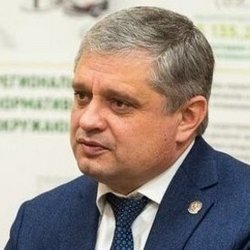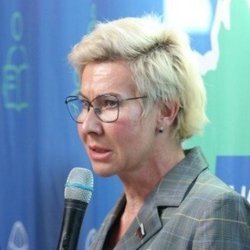‘It is necessary to clean up the mess and save the human face’
Experts of Volga club talked about the interaction of the authorities, entrepreneurs and ordinary people on environment
The environment today is not only Saturday clean-ups and waste paper recycling. For a citizen of a modern big city, this sphere includes such aspects as water and air quality, conservation of forests, municipal solid waste recycling, separate waste collection, development of eco-friendly transport and control over homeless animals. Panellists discussed what tasks the authorities should assume and how ordinary citizens can help in this chain at a meeting of Volga expert club.
People are drawn to a place with a clean environment
“The conservation of the clean environment is a task of all humanity,” noted Minister of Environment and Natural Resources of Tatarstan Alexander Shadrikov at the meeting of Volga expert club. He said that thanks to federal support, Environment national project has been actively implemented in our region for the third year. In 2020, the republic received 2,9 billion rubles in the programme. This money was spent on such events as Restoration of the Volga River, Clean Country, Conservation of Forests, Clean Water. In 2020, 11,5 billion rubles were spent to save the environment in Tatarstan. Republican enterprises invested most of the sum. According to the minister, control over air and water quality, landfill reclamation and oversight of enterprises are key tasks of the ministry.

The problem of homeless animals
In her speech, State Duma deputy Olga Pavlova focused on homeless animals. “Society has a huge request for a careful attitude to nature and a responsible attitude to pets,” she noted.
The parliamentarian said that at the moment only two countries in the world have amendments to constitutions related to homeless animals. It is Russia and Germany. As for our country, according to the politician, the 7th State Duma is called the greenest, since a huge number of environmental laws have been adopted during its activity.

The politician added that homeless animals are a hot-button and complex theme. Because on the one hand, there are animal advocates who are against trapping and killing animals. On the other hand, it is people who have faced the aggression of stray dogs. This is why the main task of the government is to build shelters and create jobs for dog handlers whose number is not enough today.
Underground waste area — new reality
There must be development and expansion in environmental issues, this is why we cannot help but use new trends, experts think. At the meeting, Tatarstan State Council deputy and Director General of SMU-88 housing developer Ilya Wolfson talked about a novelty that appeared for the first time in Kazan last year.

According to him, such know-how didn’t cause a significant rise in utility services for the locals. These containers are simply underground, while the same vehicles for land containers service them.
Think globally, act locally
“The current generation will have to do a lot to save the environment for the future generation,” noted Minister of Environment and Natural Resources of Tatarstan Alexander Shadrikov.
Community leaders who shared their observations about waste sorting also attended the meeting.
“I noticed that everything that has to do with separate waste collection entails consciousness in other spheres of life too,” shared blogger and environmental activist Alina Safina.
The girl thinks that today people lack dialogue with the authorities and information about an eco-friendly lifestyle. She urged the citizens to make their contribution to the conservation of the environment, even though it seems to them that similar actions are just a drop in the ocean.
“Think globally, act locally,” agreed Dilara Satikova, director It Will Be Clear Tatarstan youth public organisation.